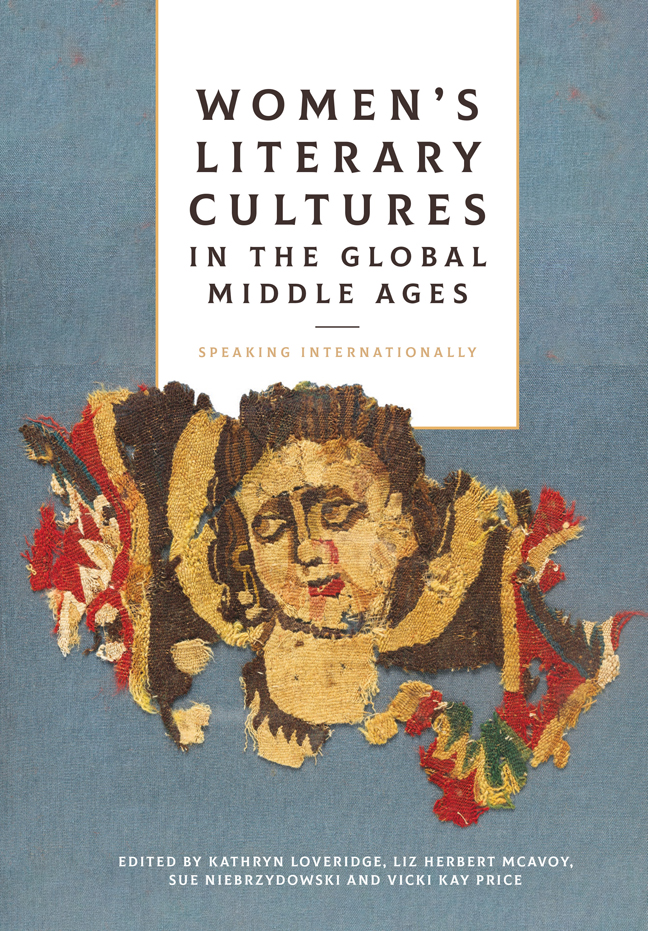Book contents
- Frontmatter
- Contents
- Foreword
- Acknowledgements
- List of Abbreviations
- Book part
- 1 Comparison and Dialogue
- 2 Constructing Gender and Genre
- 3 Saintly Performance and Marian Piety
- 4 Evidence and the Archives: Revisiting and Reconsidering
- Afterword: Intersectionality and Coalitions
- List of Contributors
- Bibliography
- Index
- Gender in the Middle Ages
12 - Negotiating the Abject and the Sublime: The Centrality of Discourse Communities Within Women's Mystical Experience
Published online by Cambridge University Press: 09 January 2024
- Frontmatter
- Contents
- Foreword
- Acknowledgements
- List of Abbreviations
- Book part
- 1 Comparison and Dialogue
- 2 Constructing Gender and Genre
- 3 Saintly Performance and Marian Piety
- 4 Evidence and the Archives: Revisiting and Reconsidering
- Afterword: Intersectionality and Coalitions
- List of Contributors
- Bibliography
- Index
- Gender in the Middle Ages
Summary
In July 1318, a woman, Auda Fabri, from the French Pyrenean village of Merviel, stood before her inquisitor and male-filled courtroom and confessed not only to a prior disbelief in Christ's transubstantiated body but to a horror of Christ's body itself. Both heresies, she claimed, stemmed from that body's association with polluting and reproductive female flesh, the ‘filth’ expelled by women during childbirth. Just over 20 years before, two nuns in the Benedictine convent of Helfta in Saxony had secretly recorded the visions of another sister, Mechthild of Hackeborn (d. 1298), in which she experienced an intense, mystical union with Christ, a union to which the same female sexualised flesh that so disgusted Auda was integral – and in which, moreover, Christ both shared and gloried. This essay examines the responses of these two women to Christ's gendered and wounded body – the male over-written Word-made-Flesh – and argues that both these women manipulated and even subverted orthodox theology to present a distinctly feminine understanding of Christ's body.
This essay focuses on two texts. The first is the deposition from the 1318–1325 Inquisition at Pamiers in which a certain Auda Fabri confesses to an intense aversion to Christ's uncontaminated and transubstantiated body, associating it with the afterbirth, which she describes as filthy and contaminating. The second text is the Liber specialis gratiae (The Book of Special Grace), Mechthild of Hackeborn's collection of her visionary encounters with Christ, recorded towards the end of the thirteenth century (an important work also focused on in its Middle English translation by Naoë KukitaYoshikawa and Liz Herbert McAvoy elsewhere in this volume). As I shall argue, in contrast to Auda's repugnance of female flesh, Mechthild transforms the pollutant into the sublime and salvific, via the more readily available communities of mystical discourse that characterised the intellectual life of the Helfta nunnery during the period. In the collaborative text eventually attributed to Mechthild, Christ's humanity is identified with the faulty, uncontained, and formless feminine, but is transformed into the ultimate expression of divinity. Masculine and feminine, spirit and flesh, divine and human, body and spirit, Christ and his Beloved constantly shift, flow into one another, and intermingle. For Mechthild, this ‘feminine’ state of flux is the ultimate state of being. Auda, however, cannot reconcile the concept of the pollutant and polluted fleshly feminine with orthodoxy's masculine divine – the paradox embodied in Christ's humanity.
- Type
- Chapter
- Information
- Women's Literary Cultures in the Global Middle AgesSpeaking Internationally, pp. 225 - 240Publisher: Boydell & BrewerPrint publication year: 2023



